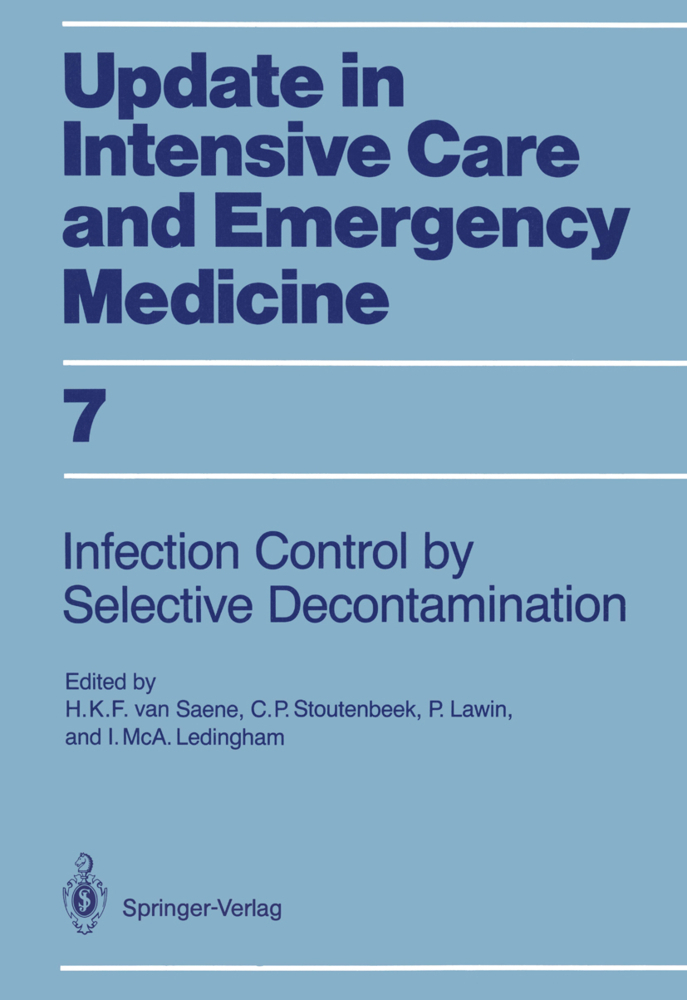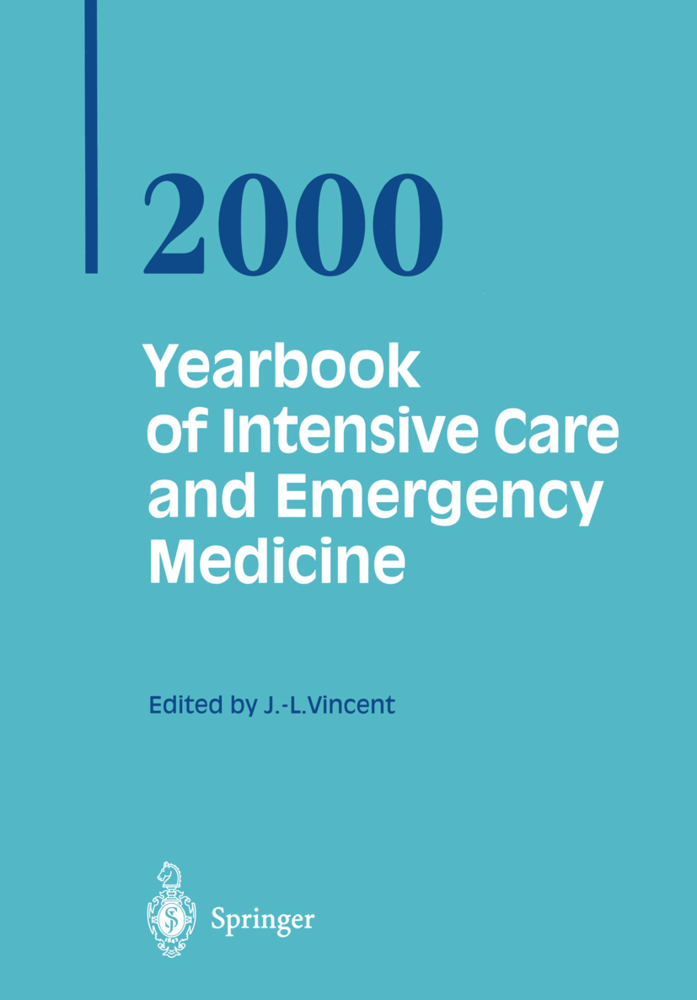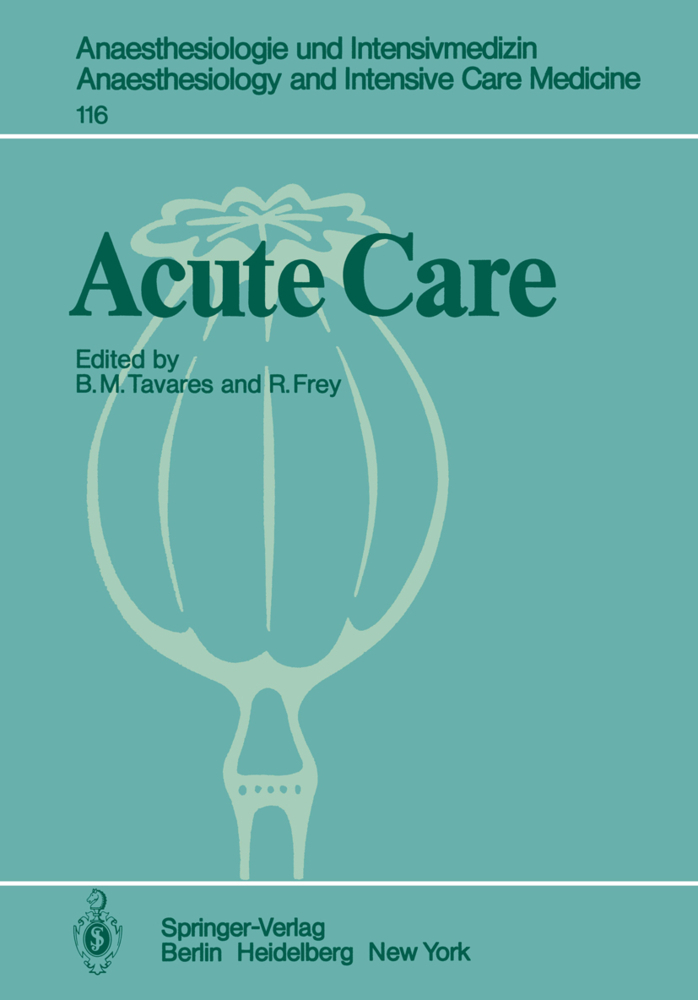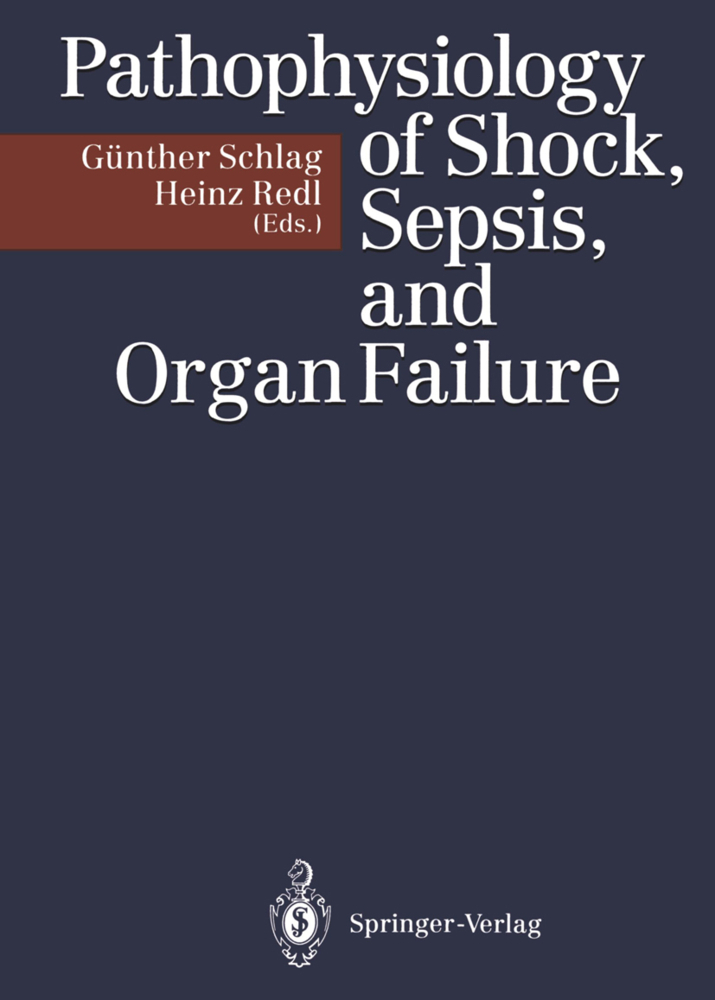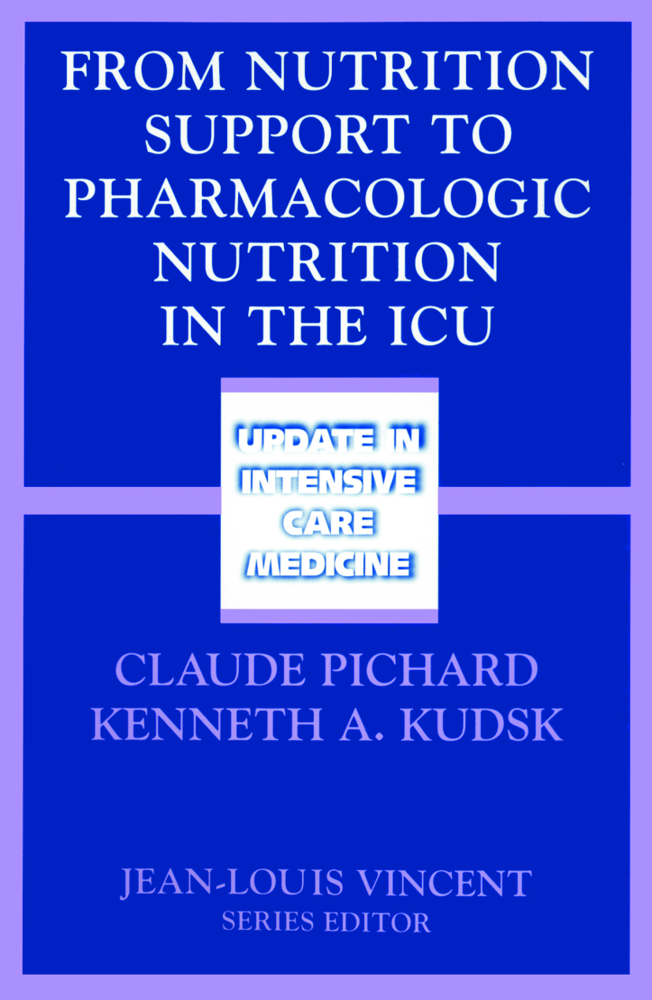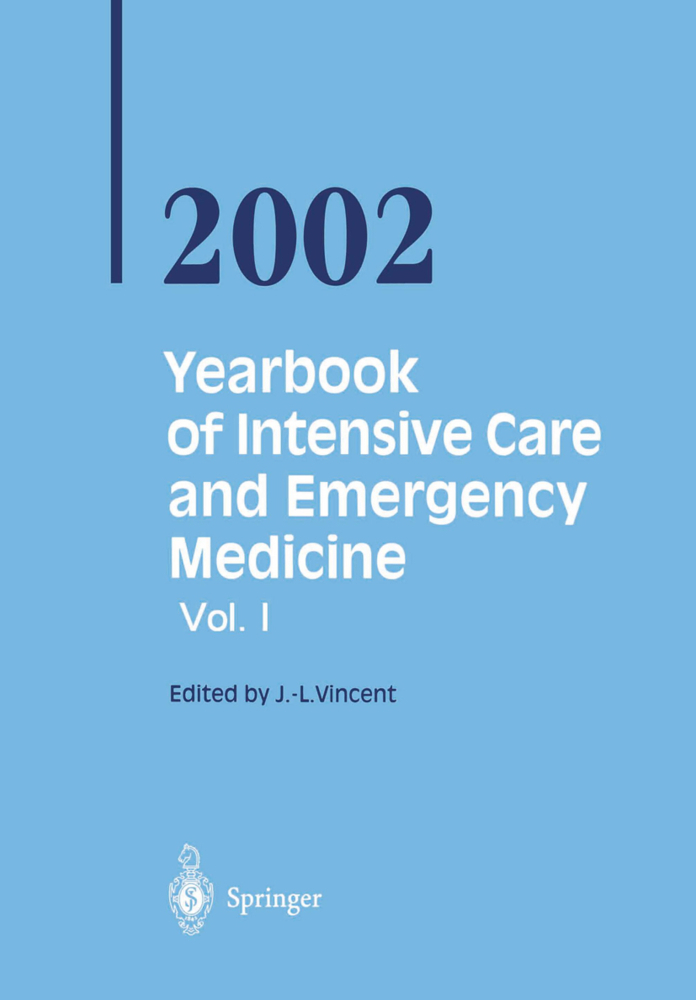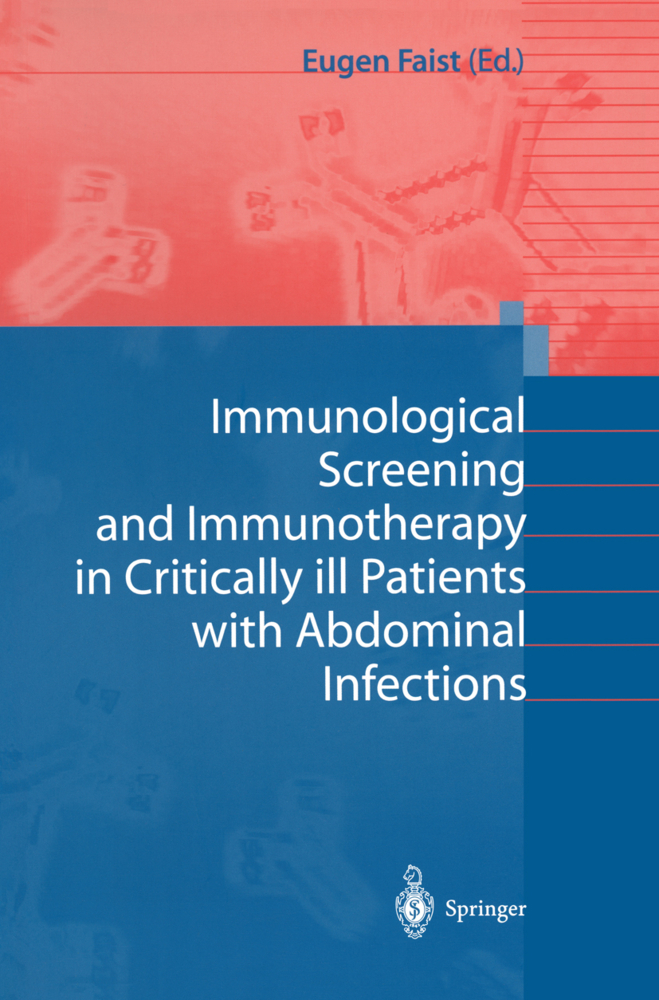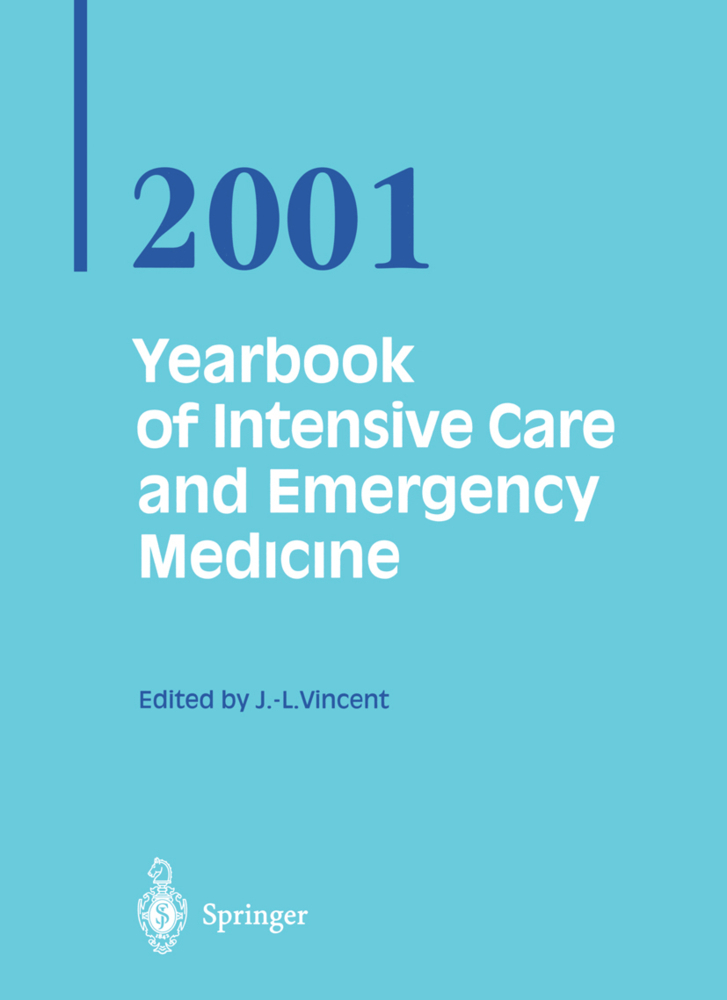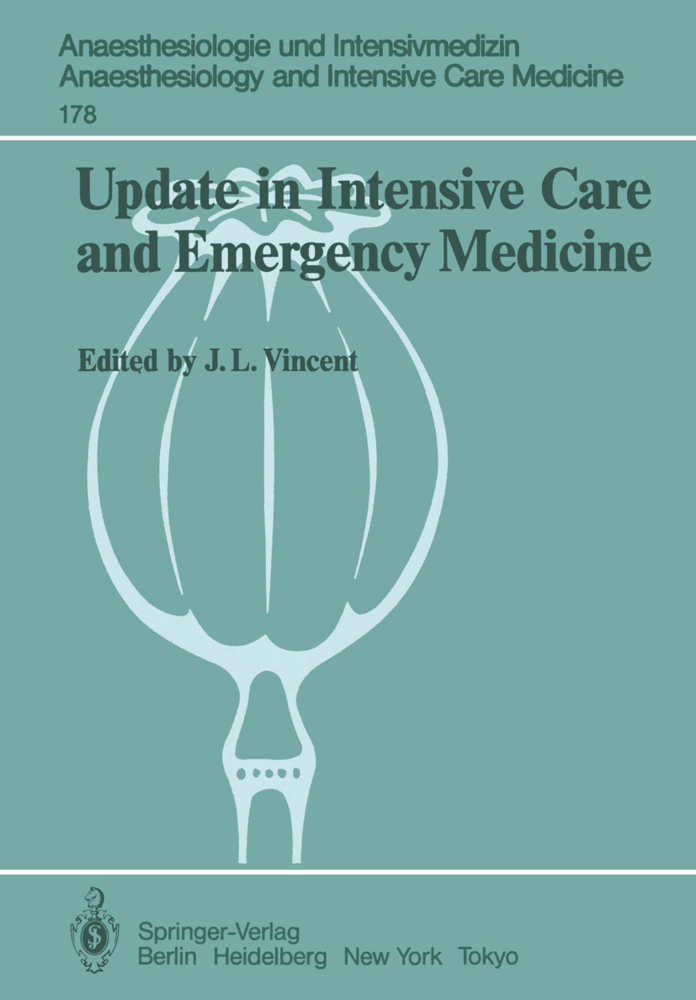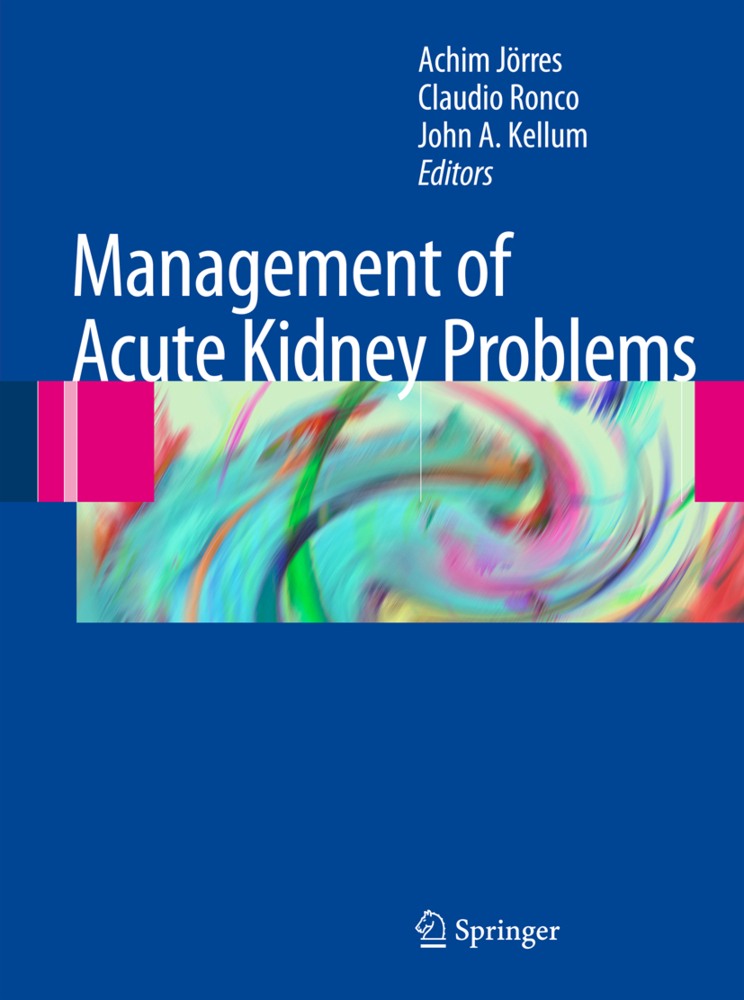Infection Control in Intensive Care Units by Selective Decontamination
The Use of Oral Non-Absorbable and Parenteral Agents
Infection Control in Intensive Care Units by Selective Decontamination
The Use of Oral Non-Absorbable and Parenteral Agents
Selective decontamination is a technique which combines short-term and long-term antimicrobials to prevent or treat the acquisition and subsequent carriage of microorganisms causing late colonization and infections. The antimicrobials are selective in that they leave the indigenous, mostly anaerobic flora more or less intact, whilst the effective decontamination provides a genuine breakthrough in the endogenous route of pathogenesis. The improvements in decontamination techniques presented here offer significant reduction in infection related morbidity and mortality among trauma patients.
Host-microorganism Relationship in Healthy People
Classification of Microorganisms Based on Intrinsic Pathogenicity
Defence Against Colonization and Infection
Oropharyngeal/Gastrointestinal Carriage: Role in Endogenous Colonization and Infection
Discussion
Host-microorganism Relationship in the Critically Ill
Impaired Colonization Defence of the Oropharynx
Impairment of Defence of the Stomach and Intestine against Colonization in the Critically Ill Patient
Pathogenesis of Colonization/Infection of Lower Airways (Endogenous vs Exogenous): Conventional Approaches to Infection Control
Discussion
Two: The Conventional Approach to Infection Control
Clinical Studies
Prospective Study of Colonization, Infection and Mortality Rates during Conventional Therapy: Glasgow Data
Infection and Mortality Rates in Critically Ill Patients during Conventional Antibiotic Regimen
A Prospective Study of Colonization and Infection in the Neonatal Surgical Unit at Alder Hey Children's Hospital, Liverpool, UK
Surveillance of Nosocomial Infections in a Surgical ICU: A Prospective Study
Prospective Study of Colonization, Infection and Mortality Rates during Conventional Therapy
Infection Control in the ICU: Pattern of Colonization and Infection in Surgical Intensive Care Patients - a Prospective Study
Discussion
Antibiotic Resistance
Where and How does Antimicrobial Resistance Develop in the Critically Ill? Studies in Neonatal Patients
Do Conventional Policies Control Antibiotic-resistant Bacteria?
Discussion
Three: An Alternative Approach - Selective Decontamination of the Digestive Tract (SDD); the Use of Non-absorbable and Parenteral Agents
Philosophy of SDD
Concept of Selective Decontamination in theCritically Ill
Topical Antibiotic Regimen
Use of a Short-term Parenteral Antibiotic as a Supplement to SDD
Pharmaceutical Technology, in Selective Decontamination
Discussion
Clinical Studies
Prospective Study of Colonization, Infection and Mortality in ICU Patients Treated with SDD and Systemic Cefotaxime: Glasgow Results
Prospective Study of Mortality Rates in Critically Ill Patients During SDD Regimen
Prospective Studies of Colonization, Infection and Mortality Rates: Liverpool Data
Infection Control by Selective Flora Suppression in Critically Ill Patients
Prospective Studies of Colonization, Infection and Mortality Rates in ICU Patients Receiving SDD: Ulm Results
Prevention of Colonization and Subsequent Infection in Critically Ill Patients: a Prospective, Randomized Study
The Effect of a Novel Regimen of Selective Decontamination on the Incidence of Unit-Acquired Lower Respiratory Tract Infection in Mechanically Ventilated Patients
Discussion
Role of Endotoxin
Significant Reduction of Faecal Endotoxin Pool by Oral Polymyxin E and Tobramycin in Human Volunteers
Endotoxaemia in Multiple Organ Failure: A Secondary Role for SDD?
Discussion
Emergence of Resistance during SDD
Cefotaxime Combined with Selective Decontamination in Long-Term Intensive Care Unit Patients: Virtual Absence of Emergence of Resistance
Emergence of Resistance During Selective Decontamination: Glasgow Results
Changes in Antibiotic Resistance in Tracheal Aspirates Following Selective Decontamination of the Digestive Tract
The Liverpool Experience, 1987-1988
Colonization and Resistance Patterns of Microbial Isolates Following SDD in Association with Short-Course Cefotaxime
Gram-negative Bacillary Resistance in a Surgical Intensive Care Unit: AFour-Year Surveillance
Discussion
Four: Stress Ulcer Prophylaxis and Pneumonia
Stress Ulcer Prophylaxis and Pneumonia
Pathogenesis of Stress Ulcer Bleeding in the Critically Ill
Gastric Colonization and Nosocomial Pneumonia in the Mechanically Ventilated Patient
New Approaches to the Prevention of Infection in Intensive Care Unit Patients
Discussion
Five: Analysis of Conventional and SDD Approaches
A Possible Explanation for the Success of SDD
Discussion
Impact of Parenteral Cephalosporins on Human Oropharyngeal and Faecal Flora
Discussion
Development of Antibiotic Resistance During Conventional and SDD
The Gut and Sepsis in the Critically Ill
Discussion
Conclusions
Close
Appendices
Appendix I: Formulations Used in Selective Decontamination
Appendix II: List of Abbreviations
Appendix III: Trials of Infection Rates Following Conventional Treatment and Selective Decontamination.
Foreword
One: PathogenesisHost-microorganism Relationship in Healthy People
Classification of Microorganisms Based on Intrinsic Pathogenicity
Defence Against Colonization and Infection
Oropharyngeal/Gastrointestinal Carriage: Role in Endogenous Colonization and Infection
Discussion
Host-microorganism Relationship in the Critically Ill
Impaired Colonization Defence of the Oropharynx
Impairment of Defence of the Stomach and Intestine against Colonization in the Critically Ill Patient
Pathogenesis of Colonization/Infection of Lower Airways (Endogenous vs Exogenous): Conventional Approaches to Infection Control
Discussion
Two: The Conventional Approach to Infection Control
Clinical Studies
Prospective Study of Colonization, Infection and Mortality Rates during Conventional Therapy: Glasgow Data
Infection and Mortality Rates in Critically Ill Patients during Conventional Antibiotic Regimen
A Prospective Study of Colonization and Infection in the Neonatal Surgical Unit at Alder Hey Children's Hospital, Liverpool, UK
Surveillance of Nosocomial Infections in a Surgical ICU: A Prospective Study
Prospective Study of Colonization, Infection and Mortality Rates during Conventional Therapy
Infection Control in the ICU: Pattern of Colonization and Infection in Surgical Intensive Care Patients - a Prospective Study
Discussion
Antibiotic Resistance
Where and How does Antimicrobial Resistance Develop in the Critically Ill? Studies in Neonatal Patients
Do Conventional Policies Control Antibiotic-resistant Bacteria?
Discussion
Three: An Alternative Approach - Selective Decontamination of the Digestive Tract (SDD); the Use of Non-absorbable and Parenteral Agents
Philosophy of SDD
Concept of Selective Decontamination in theCritically Ill
Topical Antibiotic Regimen
Use of a Short-term Parenteral Antibiotic as a Supplement to SDD
Pharmaceutical Technology, in Selective Decontamination
Discussion
Clinical Studies
Prospective Study of Colonization, Infection and Mortality in ICU Patients Treated with SDD and Systemic Cefotaxime: Glasgow Results
Prospective Study of Mortality Rates in Critically Ill Patients During SDD Regimen
Prospective Studies of Colonization, Infection and Mortality Rates: Liverpool Data
Infection Control by Selective Flora Suppression in Critically Ill Patients
Prospective Studies of Colonization, Infection and Mortality Rates in ICU Patients Receiving SDD: Ulm Results
Prevention of Colonization and Subsequent Infection in Critically Ill Patients: a Prospective, Randomized Study
The Effect of a Novel Regimen of Selective Decontamination on the Incidence of Unit-Acquired Lower Respiratory Tract Infection in Mechanically Ventilated Patients
Discussion
Role of Endotoxin
Significant Reduction of Faecal Endotoxin Pool by Oral Polymyxin E and Tobramycin in Human Volunteers
Endotoxaemia in Multiple Organ Failure: A Secondary Role for SDD?
Discussion
Emergence of Resistance during SDD
Cefotaxime Combined with Selective Decontamination in Long-Term Intensive Care Unit Patients: Virtual Absence of Emergence of Resistance
Emergence of Resistance During Selective Decontamination: Glasgow Results
Changes in Antibiotic Resistance in Tracheal Aspirates Following Selective Decontamination of the Digestive Tract
The Liverpool Experience, 1987-1988
Colonization and Resistance Patterns of Microbial Isolates Following SDD in Association with Short-Course Cefotaxime
Gram-negative Bacillary Resistance in a Surgical Intensive Care Unit: AFour-Year Surveillance
Discussion
Four: Stress Ulcer Prophylaxis and Pneumonia
Stress Ulcer Prophylaxis and Pneumonia
Pathogenesis of Stress Ulcer Bleeding in the Critically Ill
Gastric Colonization and Nosocomial Pneumonia in the Mechanically Ventilated Patient
New Approaches to the Prevention of Infection in Intensive Care Unit Patients
Discussion
Five: Analysis of Conventional and SDD Approaches
A Possible Explanation for the Success of SDD
Discussion
Impact of Parenteral Cephalosporins on Human Oropharyngeal and Faecal Flora
Discussion
Development of Antibiotic Resistance During Conventional and SDD
The Gut and Sepsis in the Critically Ill
Discussion
Conclusions
Close
Appendices
Appendix I: Formulations Used in Selective Decontamination
Appendix II: List of Abbreviations
Appendix III: Trials of Infection Rates Following Conventional Treatment and Selective Decontamination.
Saene, Hendrik K. F.van
Stoutenbeek, C. P.
Lawin, Peter
Ledingham, I.McA.
| ISBN | 978-3-540-51041-3 |
|---|---|
| Artikelnummer | 9783540510413 |
| Medientyp | Buch |
| Copyrightjahr | 1989 |
| Verlag | Springer, Berlin |
| Umfang | XV, 235 Seiten |
| Abbildungen | XV, 235 p. 5 illus. |
| Sprache | Englisch |

